movie frame analyze rewrite
Running head: A frame of twelve years a slave
Analyzing a frame of the movie twelve years a slave
Student’s name
Professor
date

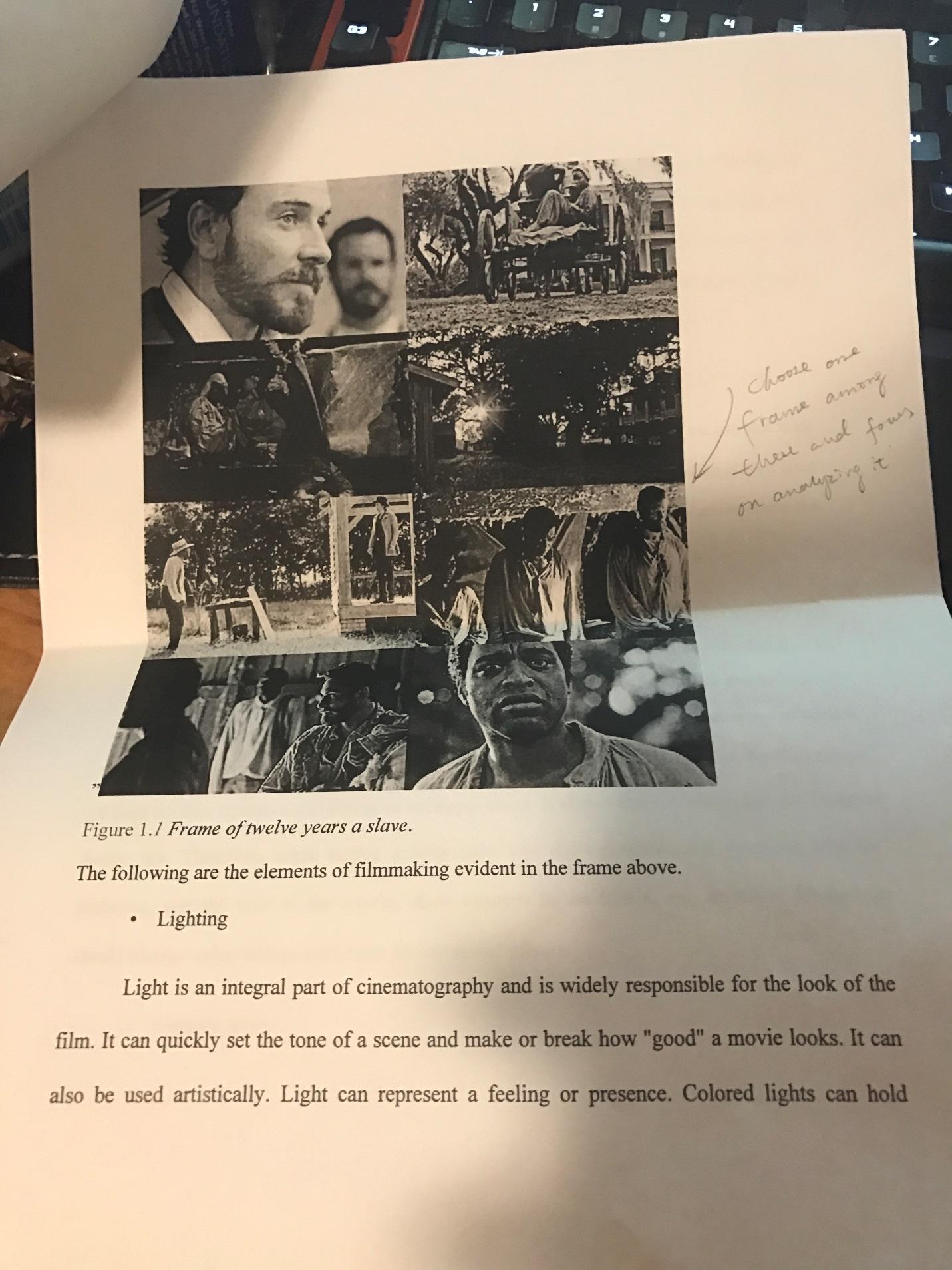
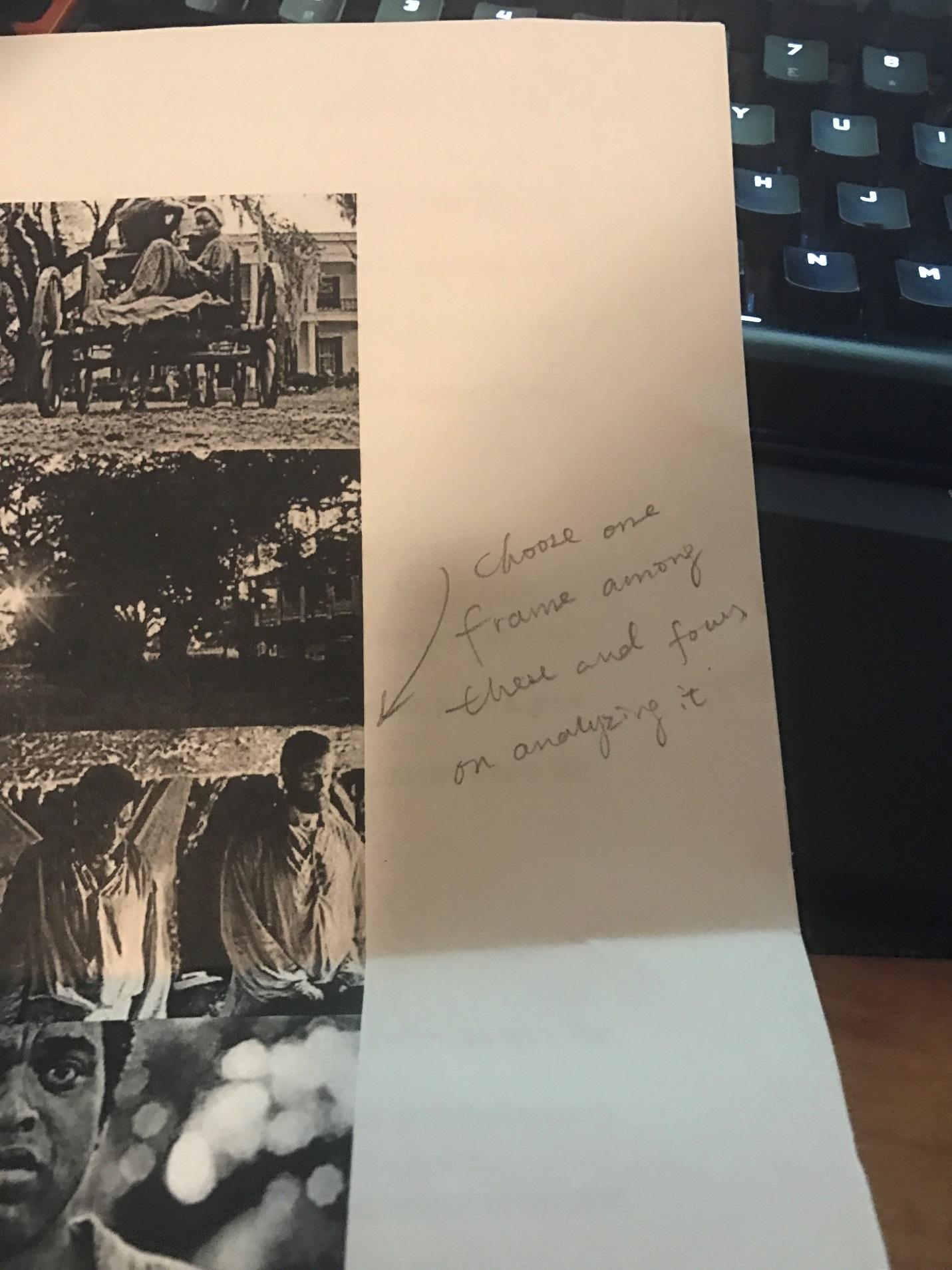
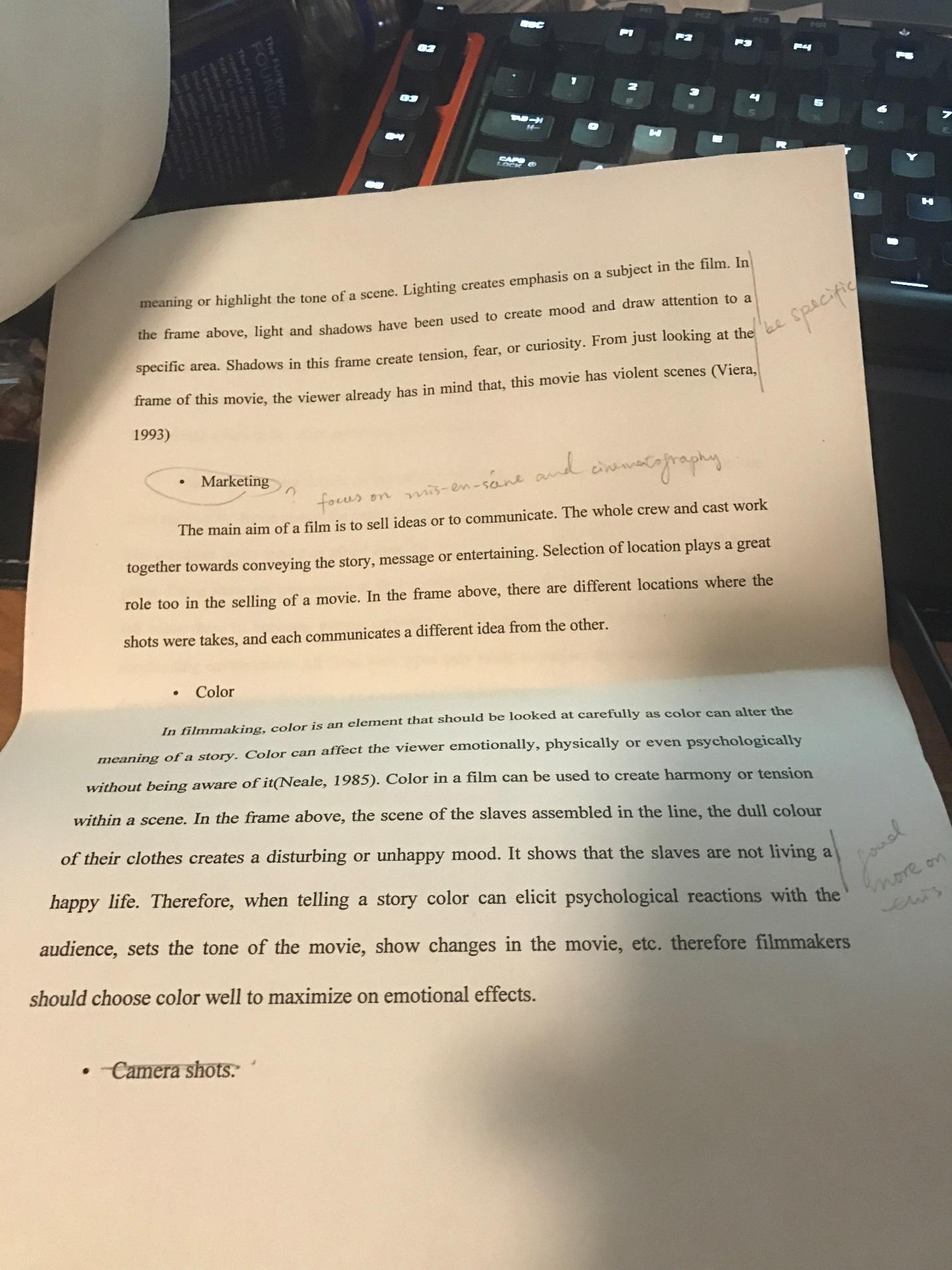
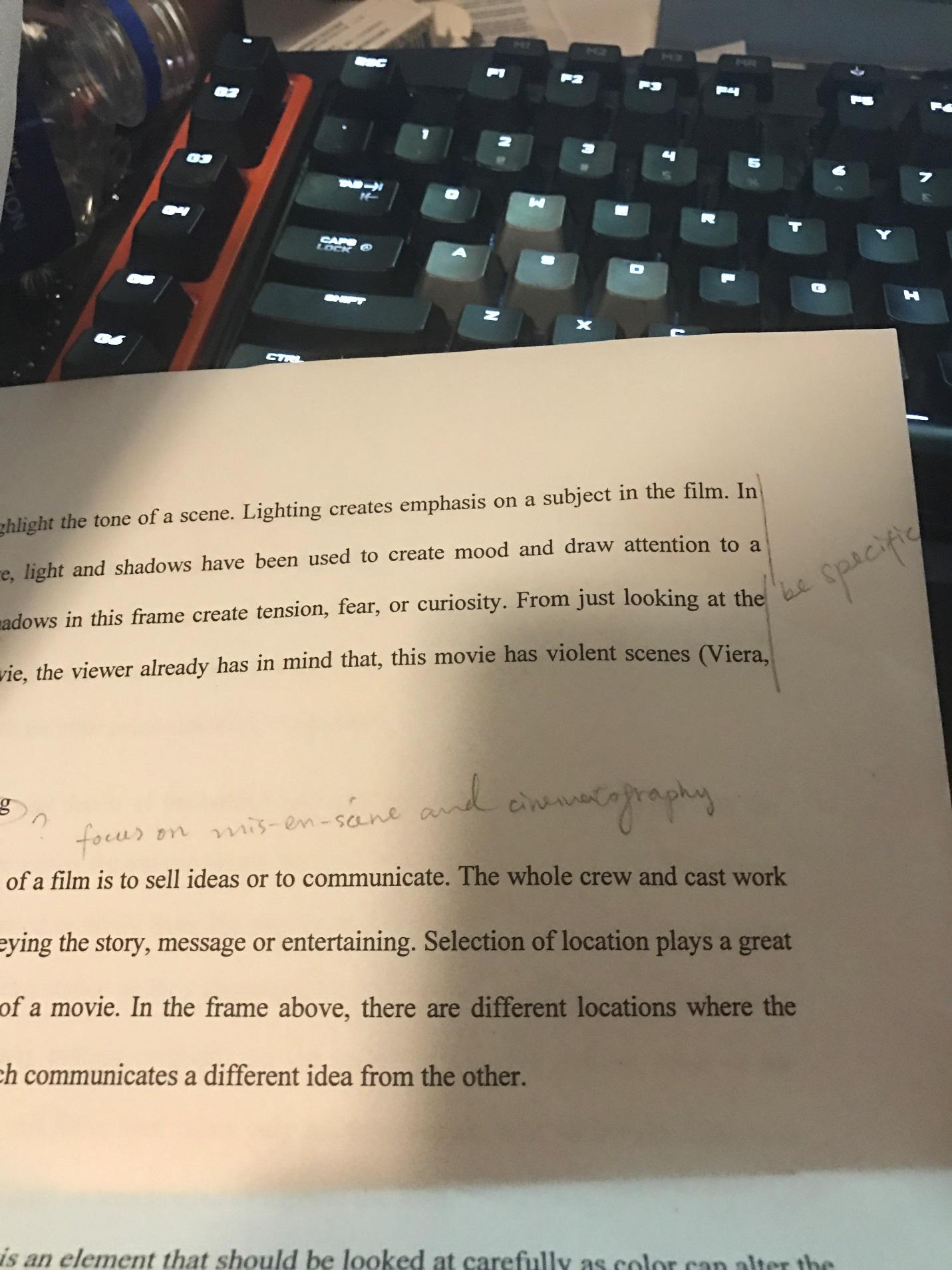
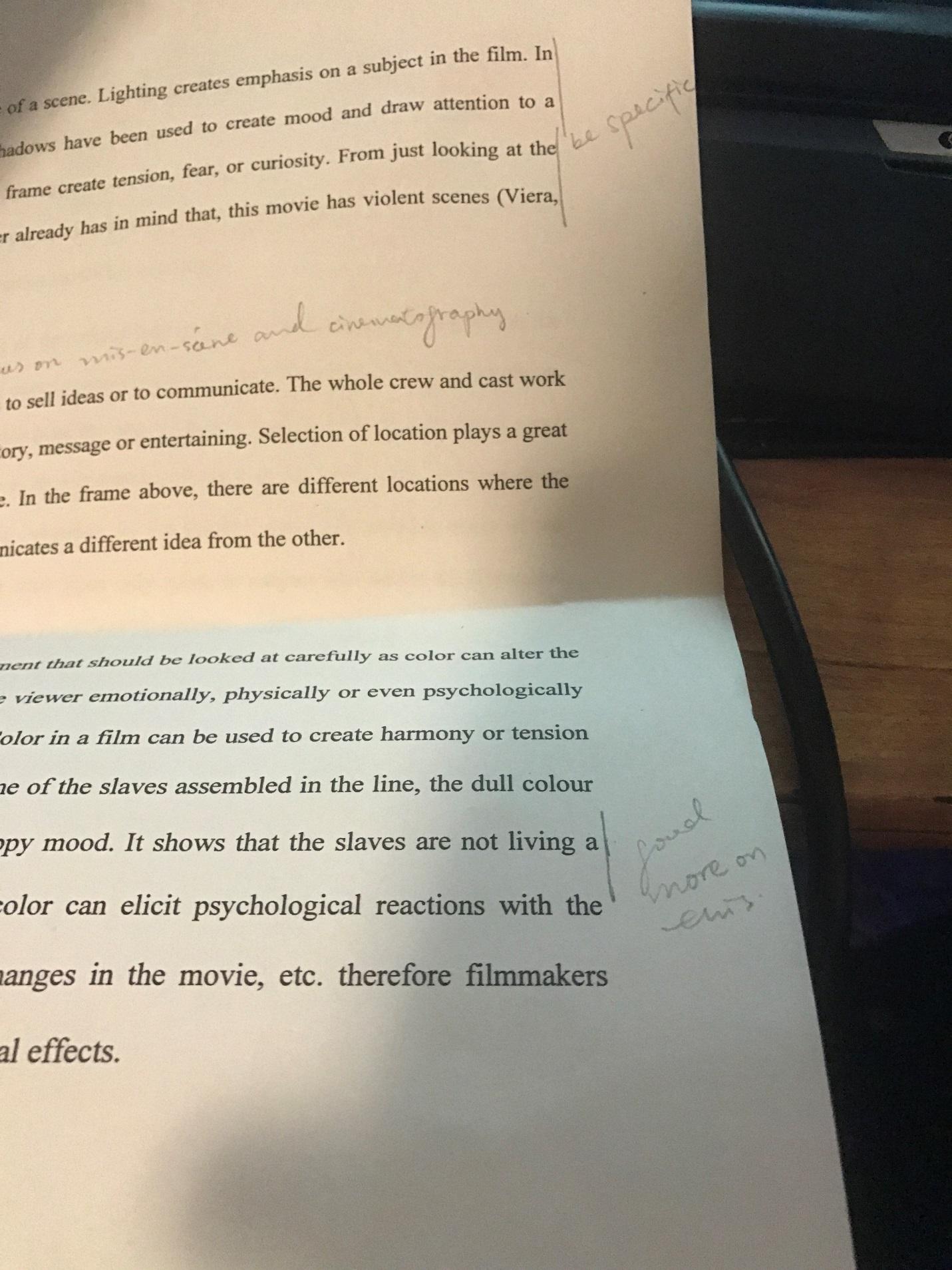
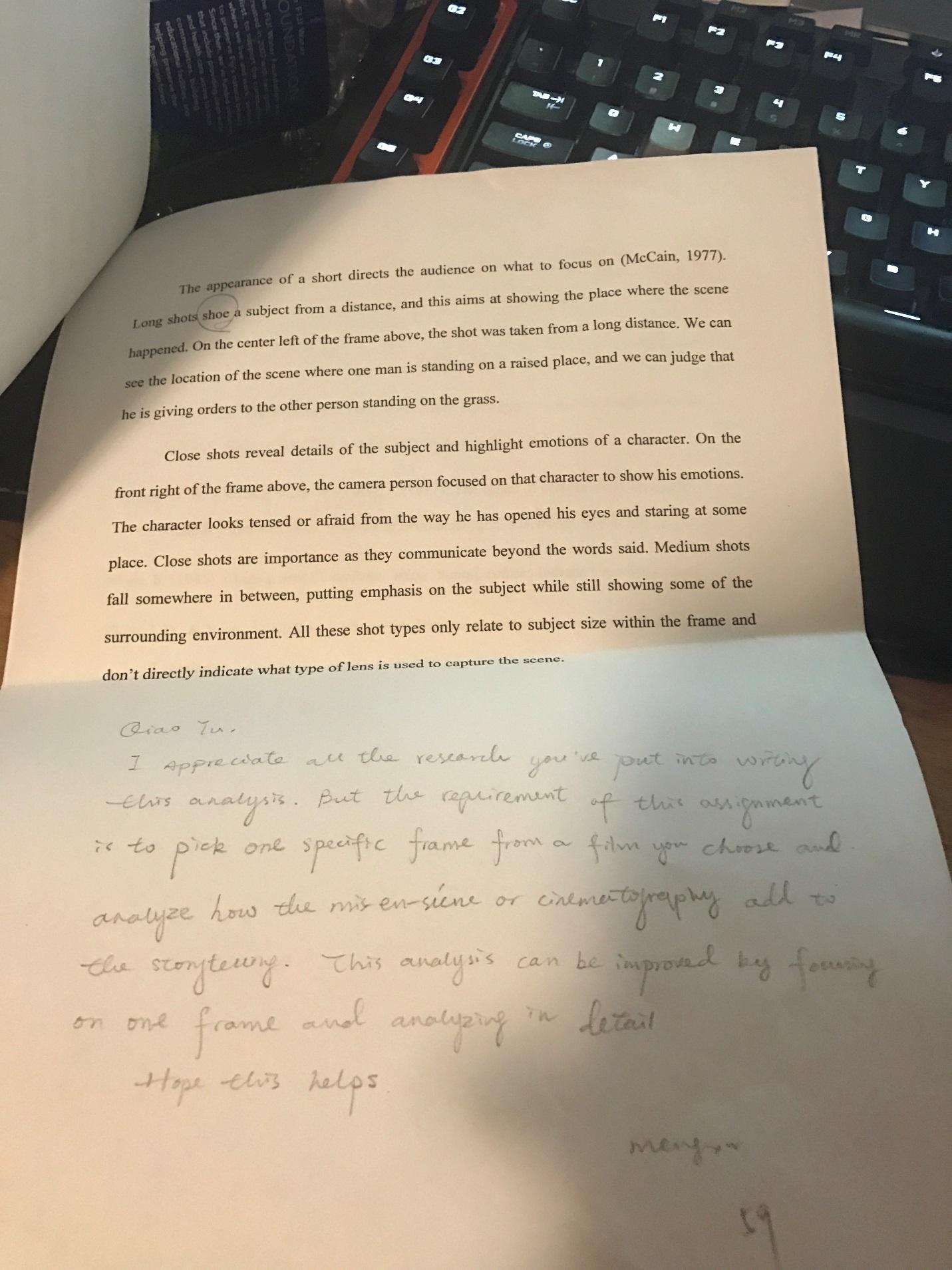
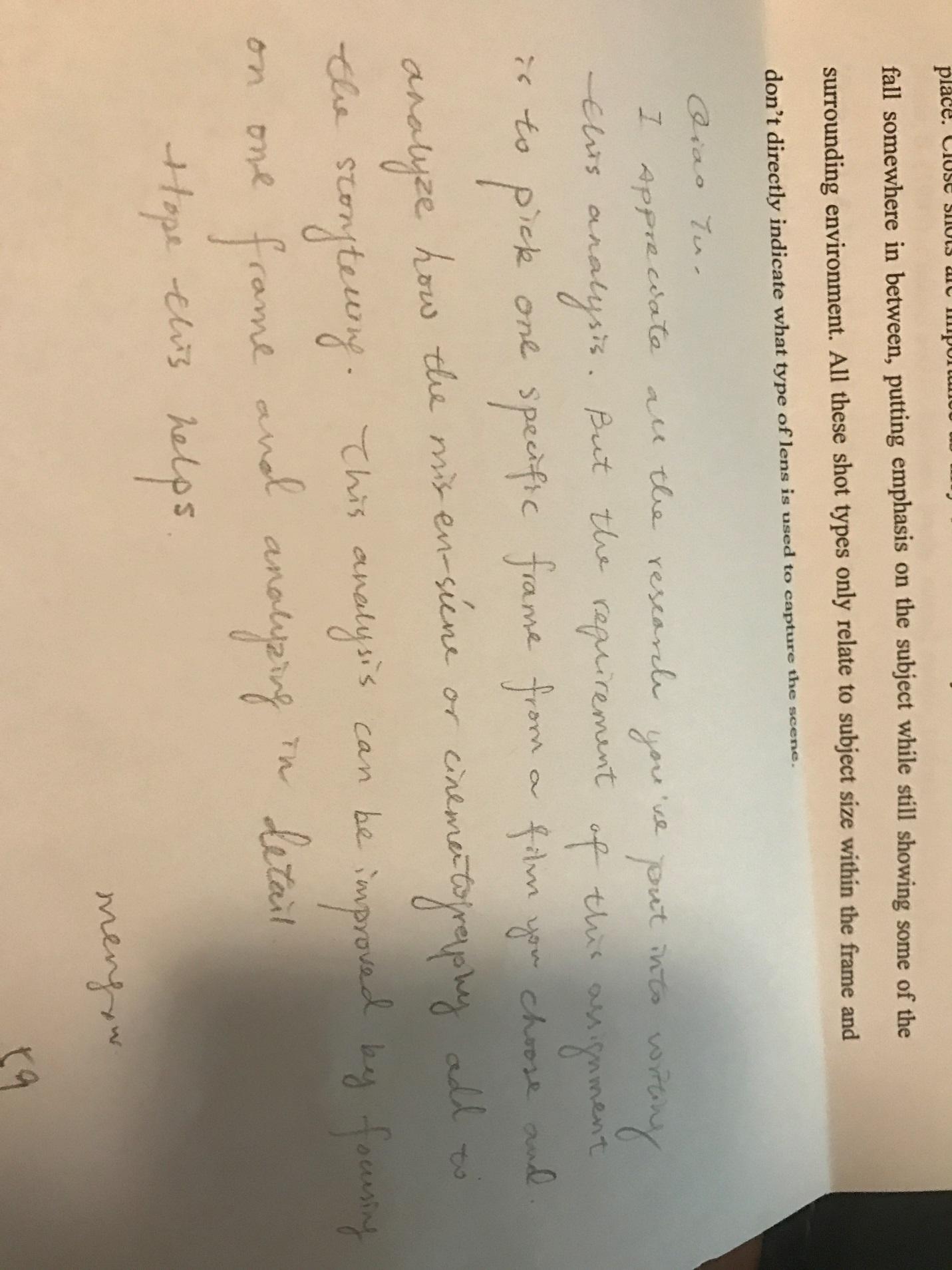
A frame is a term in film making or video production to mean one of the many still images which compose the complete moving picture. A frame communicates about the whole movie. It gives an idea of what the movie is all about. Therefore a frame should be attractive to create publicity or to advertise the movie. The frame below is derived from the movie “twelve years a
Slave”
”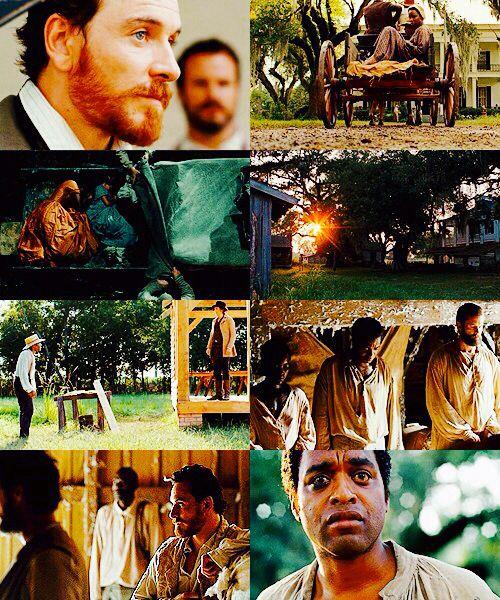
Figure 1.1 Frame of twelve years a slave.
The following are the elements of filmmaking evident in the frame above.
• Lighting
Light is an integral part of cinematography and is widely responsible for the look of the film. It can quickly set the tone of a scene and make or break how "good" a movie looks. It can also be used artistically. Light can represent a feeling or presence. Colored lights can hold meaning or highlight the tone of a scene. Lighting creates emphasis on a subject in the film. In the frame above, light and shadows have been used to create mood and draw attention to a specific area. Shadows in this frame create tension, fear, or curiosity. From just looking at the frame of this movie, the viewer already has in mind that, this movie has violent scenes (Viera, 1993)
• Marketing
The main aim of a film is to sell ideas or to communicate. The whole crew and cast work together towards conveying the story, message or entertaining. Selection of location plays a great role too in the selling of a movie. In the frame above, there are different locations where the shots were takes, and each communicates a different idea from the other.
• Color
In filmmaking, color is an element that should be looked at carefully as color can alter the meaning of a story. Color can affect the viewer emotionally, physically or even psychologically without being aware of it(Neale, 1985). Color in a film can be used to create harmony or tension within a scene. In the frame above, the scene of the slaves assembled in the line, the dull colour of their clothes creates a disturbing or unhappy mood. It shows that the slaves are not living a happy life. Therefore, when telling a story color can elicit psychological reactions with the audience, sets the tone of the movie, show changes in the movie, etc. therefore filmmakers should choose color well to maximize on emotional effects.
• Camera shots.
The appearance of a short directs the audience on what to focus on (McCain, 1977). Long shots shoe a subject from a distance, and this aims at showing the place where the scene happened. On the center left of the frame above, the shot was taken from a long distance. We can see the location of the scene where one man is standing on a raised place, and we can judge that he is giving orders to the other person standing on the grass.
Close shots reveal details of the subject and highlight emotions of a character. On the front right of the frame above, the camera person focused on that character to show his emotions. The character looks tensed or afraid from the way he has opened his eyes and staring at some place. Close shots are importance as they communicate beyond the words said. Medium shots fall somewhere in between, putting emphasis on the subject while still showing some of the surrounding environment. All these shot types only relate to subject size within the frame and don’t directly indicate what type of lens is used to capture the scene.
References
Gans, H. J. (1957). The creator-audience relationship in the mass media: an analysis of movie making. Mass culture: The popular arts in America, 315-24.
McCain, T. A., Chilberg, J., & Wakshlag, J. (1977). The effect of camera angle on source credibility and attraction. Journal of Broadcasting & Electronic Media, 21(1), 35-46.
Neale, S. (1985). Cinema and technology: image, sound, colour. Indiana University Press.
Viera, J. D., & Viera, M. (1993). Lighting for film and electronic cinematography. Cengage Learning.



